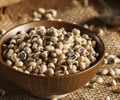Flavonoids can aid in preventing cognitive decline by adding them to your daily dietary intake
- Flavonoids reduce neuroinflammation and oxidative stress and seem to reverse symptoms associated with cognitive diseases
- Flavonoids enhance cognitive function at a behavioral level and attenuate cognitive decline promoted by brain disorders
Impact of Flavonoids on Cellular and Molecular Mechanisms Underlying Age-Related Cognitive Decline and Neurodegeneration
Go to source). There is mounting evidence suggesting that flavonoids are powerhouses when it comes to preventing your thinking skills from declining as you grow older. Making simple changes to your diet could help prevent cognitive decline. In a study, 961 participants with an average age of 81 without dementia participated in a questionnaire-based study where they had to fill out a questionnaire each year on how often they ate certain foods. They also completed an annual cognitive and memory test. Over the seven-year period, other factors such as their educational level, time spent doing physical activities, and the amount of mentally engaging activities such as reading and playing games were also tracked (2✔ ✔Trusted Source
Dietary flavonols and risk of Alzheimer dementia
Go to source).
The people were divided into five equal groups on the basis of the amount of flavonols they consumed in their diet. While the average amount of flavonol intake in US adults is about 16 to 20 mg per day, the study population had an average dietary intake of 10 mg per day. The lowest group had an intake of about 5 mg per day, and the highest group consumed an average of 15 mg per day, which is equivalent to about one cup of dark leafy greens.
The biggest limitation that was faced during the course of the study was that the food frequency questionnaire, although valid, was self-reported, so people often did not accurately remember what they ate.
Top Foods that can aid in the Prevention of Cognitive Decline
The top foods are:Flavonols can be broken down into their four constituents: kaempferol, quercetin, myricetin, and isorhamnetin.
- Kale, beans, tea, spinach, and broccoli for kaempferol
- Tomatoes, kale, apples, and tea for quercetin
- Tea, wine, kale, oranges, and tomatoes for myricetin
- Pears, olive oil, wine, and tomato sauce for isorhamnetin
References:
- Impact of Flavonoids on Cellular and Molecular Mechanisms Underlying Age-Related Cognitive Decline and Neurodegeneration - (https://www.ncbi.nlm.nih.gov/pmc/articles/PMC5960493/)
- Dietary flavonols and risk of Alzheimer dementia - (https://pubmed.ncbi.nlm.nih.gov/31996451/)












